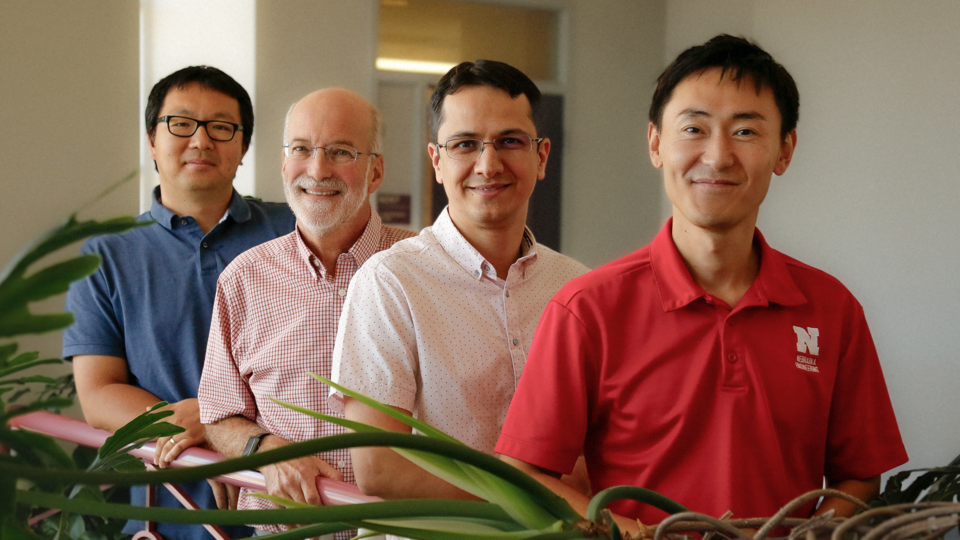
Nebraska Part of Interdisciplinary Team Examining Climate Resiliency Through Soil
Water stress in the High Plains threatens agriculture and rural communities, and it’s expected to worsen with climate change. University of Nebraska–Lincoln researchers are joining with colleagues at two other universities to find ways to improve preservation of soil moisture in farm fields and help rural areas become more climate resilient.
The interdisciplinary team from Nebraska, Kansas State University and Langston University in Oklahoma will focus on three states where water stress is especially acute. As of October 2022, 100% of Oklahoma and Nebraska and 98.5% of Kansas were in drought. As drought conditions persist because of climate change, it’s expected farmers will have to irrigate more, and even with more irrigation, yields are expected to drop.
“In regions with irrigation, more water will be needed under the hotter and drier conditions,” said Seunghee Kim, associate professor of civil engineering and the project’s lead investigator. “Preservation of soil moisture will therefore be a critical objective under rainfed and irrigated conditions.”
The MICRA project — microbial innovations for climate-resilient agriculture — brings together engineers, mathematicians, soil and agricultural scientists, social scientists and agricultural economists to conduct research, education and outreach. It is funded by a four-year, $6 million grant from the National Science Foundation, $2.1 million of which will come to Nebraska.
Researchers will experiment with soil amendments — soil-wetting bacteria — and biochar — charcoal produced from plant matter — to measure their impact on soil water-holding capacity. The team also will combine research in soil moisture sensing, microbial communities, plants’ response to drought, irrigation technologies and socio-economic analyses.
Continue this article onNebraska Today.
OnlineMaster of Science in Agronomy
With a focus on industry applications and research, the online program is designed with maximum flexibility for today's working professionals.

